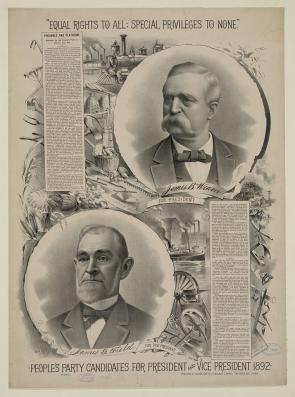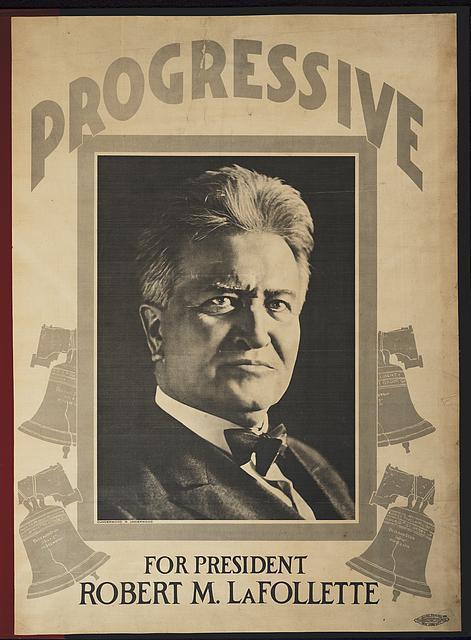The Proud History of Wasted Votes
Media Rants
by Tony Palmeri
Note: An audio version of this column can be found here.
Note: An audio version of this column can be found here.
Last month in Houston the Green Party nominated Dr.Jill Stein and human rights activist Ajamu Baraka as their candidates for
president and vice-president. Given that I’d once run for state office as a
Green, Wisconsin Public Radio invited me to spend an hour on the network to
talk about the role of third parties in 2016. Predictably, the issue of voting
for a third party being a spoiler or wasted vote came up. The idea that we only
have two choices in elections, and that every other choice is worthless is so
deeply ingrained and intoxicating that even brilliant people who show know
better like NYU scholar Clay Shirky fall for it. He says: “The system is set up so that
every choice other than ‘R’ or ‘D’ boils down to ‘I defer to the judgement of
my fellow citizens.’ It’s easy to argue that our system shouldn’t work like
that. It’s impossible to argue it doesn’t work like that.” Wow, how brilliant.
Bet you never thought of that before.
Shirky and
others are correct of course that major party candidates will probably always
win the presidential election. But does he seriously believe that third party
votes are nothing more than deference to the judgement of major party voters;
i.e. wasted votes? If so, that’s an absurd position reflecting a profound
misunderstanding of the historic role of third parties in America as both
symbols of resistance to corruption AND as advocates for public policy ideas
that (when we are lucky) the major parties eventually take up. Kevin Zeese believes third party candidates are often "democracy heroes," a view I have much sympathy for. Examples:
In 1844 the
major party candidates were Whig Henry Clay and Democrat James Polk. Clay was
the “lesser evil” because unlike Polk he was hesitant to call for annexation of
the Republic of Texas, a position that would inevitably lead to war with
Mexico. Significantly, both Clay and Polk were slave owners. That year James
Birney ran on the Liberty Party ticket on a strict abolition of slavery
platform, sixteen years before the start of the Civil War.
Did Birney
voters waste their votes?
In 1892 the
Democrats and Republicans fielded two mediocrities: Grover Cleveland and
Benjamin Harrison. That year the new Populist Party nominated James Weaver who
ran on a platform that boldly called out the major parties complicity in
enabling the corrupt capitalism of the time: “The fruits of the toil of
millions are badly stolen to build up colossal fortunes for a few,
unprecedented in the history of mankind; and the possessors of these, in turn,
despise the Republic and endanger liberty.”
Did Weaver voters
waste their votes?
In 1920 women
could for the first time vote for president in all of the states. What were
their establishment party choices? Republicans nominated lightweight Warren
Harding who urged a “return to normalcy” after the tumultuous World War I
years. Democrats nominated Ohio Governor James Cox, a man who supported many
progressive causes but caved in to the anti-immigrant sentiment of the time and
endorsed the “Ake Law” which banned the teaching of German in the schools. He
said that teaching German was “a distinct menace to Americanism.”
In 1920 the
Socialist Eugene Debs ran for president from the prison cell where he was
serving time for speaking out against the war. He received over 900,000 votes, a
dramatic symbol of resistance to the establishment’s war on the Constitution.
Did Debs’
voters waste their votes?
In 1924
Wisconsin’s Fighting Bob LaFollette ran an inspiring third party campaign
against Republican Calvin Coolidge and Democrat John W. Davis (a Democrat who
supported the “separate but equal” doctrine that kept the schools segregated).
LaFollette stood against child labor, for progressive taxation, and for a
wealth of additional measures we today either take for granted or still have
not got to.
Did
LaFollette’s voters waste their votes?
In 1948 another Progressive, former Vice-President (serving under FDR from 1940-144) Henry Wallace, challenged Democrat Harry Truman, Republican Thomas Dewey, and Dixiecrat Strom Thurmond. Wallace earned less than 3 percent of the national vote, but his campaign courageously called for an end to the disgraceful "Un-American Activities Committee." Moreover, he insisted on speaking at integrated rallies, a radical position in racist Jim Crow America.
Did Wallace's voters waste their votes?
There are
many other examples, from environmentalist icon Barry Commoner’s 1980 run with
the Citizens Party to Ralph Nader’s much maligned 2000 Green Party effort. Say
what you want about Nader “spoiling” the election, but the fact remains that a
quarter million registered Democrats in Florida voted for George W. Bush.
Moreover, Nader remains as the only candidate to call for a Marshall Plan to
revive America’s inner cities, a position that the major parties better take up
soon lest we see the continuation of the despair leading to unrest and chaos.
Most of you
reading this rant have probably spent your lives voting for Democrats and Republicans.
You’ll probably be scared into doing it again this year. All I ask is that you
consider what voting for the establishment has gotten us over the last 30 years:
the bipartisan invasion of at least four countries, trade deals that decimated
the USA’s manufacturing base and wages, the abandonment of almost every New
Deal and Great Society program, tax policies that support urban sprawl, deregulation
mania that wrecked the economy, mass incarceration and the militarization of
the police, a massive and unaccountable Homeland Security apparatus, Soviet
style assaults on whistleblowers, health reform written by private insurers and
pharmaceutical companies, and the virtual elimination of competition for most
congressional seats. Meanwhile media censorship of third parties and consequent
low vote count for them keeps reform platforms out of the public eye.
Maybe YOU
have been wasting your vote?


No comments:
Post a Comment